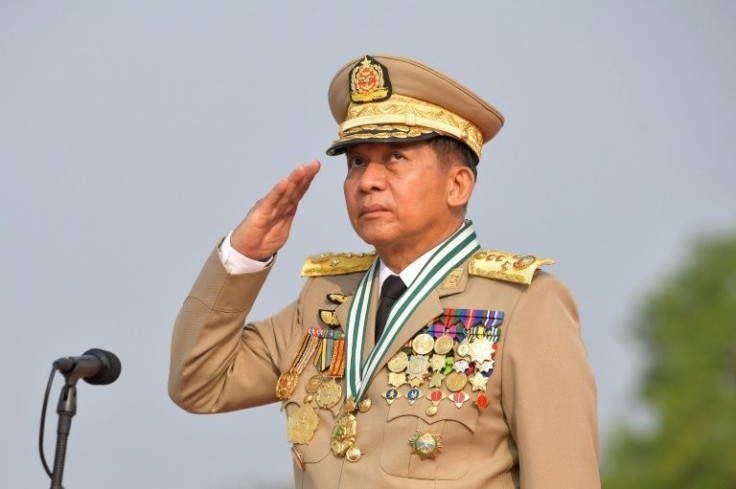Myanmar Junta Extends State Of Emergency
Myanmar's military government has extended a state of emergency by six months, state media said Monday, with the junta chief saying elections could only take place when the conflict-wracked country was "stable and peaceful".
Min Aung Hlaing, who led last year's coup, requested the military government to "allow him to serve for an additional 6 months", according to a report in the Global New Light of Myanmar.
Members of the junta's National Defence and Security Council "unanimously supported the proposal", it said.
The junta declared a state of emergency after ousting Aung San Suu Kyi's government in February last year and plunged the country into turmoil.
It has previously said elections would be held and the state of emergency lifted by August 2023 -- extending the initial one-year timeline it announced days after the coup.
The army has justified its power grab by alleging massive fraud during the 2020 elections in which Suu Kyi's National League for Democracy (NLD) trounced a military-backed party.
Last year, it cancelled the results of the polls, saying it had uncovered more than 11 million instances of voter fraud.
International observers said the voting was largely free and fair.

Suu Kyi has been detained since the coup and faces an eclectic raft of charges that could see her jailed for more than 150 years.
In a speech broadcast on Monday, Min Aung Hlaing did not mention a date for fresh polls but said they could only be held when the country was "peaceful and stable".
He also said "reform" to the country's electoral system was needed, including combining the first-past-the-post system -- under which Suu Kyi's NLD has won sweeping majorities -- with proportional representation.
The influence of "powerful parties" had previously stifled other political voices in the country, he said.
The junta chief also invited the leaders of a number of the country's established ethnic rebel groups for a second round of face-to-face meetings.
Myanmar has about 20 ethnic rebel armies -- many of which control swathes of remote border territory, and have fought each other and the military for decades.
Some have condemned the coup and offered shelter and weapons training to the "People's Defence Forces" (PDFs) that have sprung up since the putsch, and which analysts say have surprised the military with their effectiveness.
Several ethnic rebel groups attended a first round of "peace talks" with the junta in May, although groups fighting alongside anti-junta rebels stayed away.
© Copyright AFP 2024. All rights reserved.











